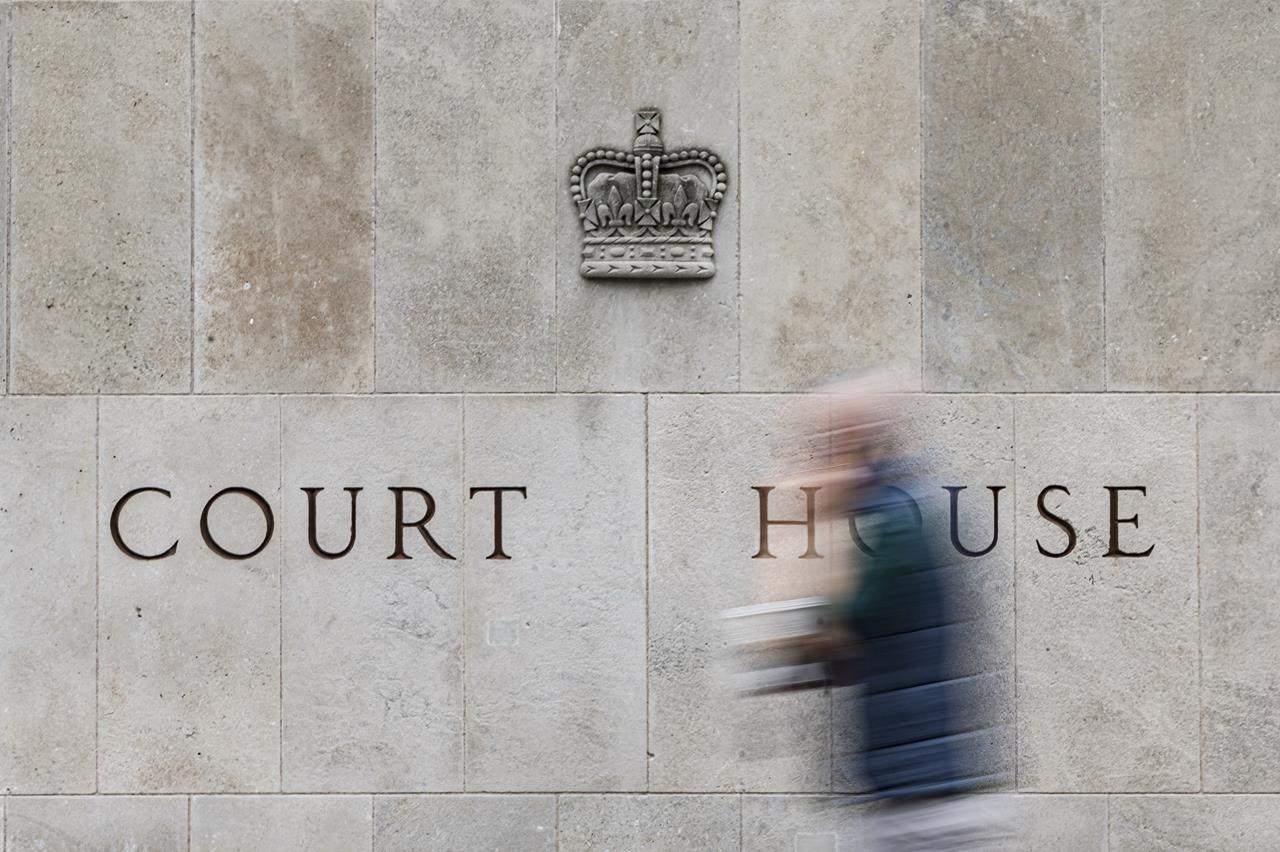Court hears challenge of Ontario law banning ‘aggressive’ panhandling
Published February 6, 2024 at 7:58 am

An Ontario court is set to hear a constitutional challenge to a panhandling law that advocates say is grossly disproportionate and infringes the rights of some of the most vulnerable members of society.
The challenge, being heard this week in Ontario Superior Court, was launched in 2017 by the Fair Change legal clinic against the Safe Streets Act, in force since 2000. The law prohibits soliciting in an aggressive manner and soliciting a “captive audience,” including people waiting to use an ATM or public transit.
Violations of the law come with a maximum fine of $500 for the first offence and a maximum fine of $1,000 or imprisonment for up to six months for subsequent offences.
Fair Change argues the law violates several charter rights, including freedom of expression and the right not to be subjected to cruel and unusual punishment.
“By design, it targets the most vulnerable population in our society for doing one of the most desperate acts imaginable – begging for spare change,” Chris Hummel, Fair Change legal counsel, wrote in a statement.
“It heaps fines on people with nothing to give, and jails people who already suffer disproportionately from mental illness, trauma, addiction, and stigma.”
Fair Change’s arguments cite a 2011 research paper that found the Toronto Police Service alone issued 67,388 tickets under the Safe Streets Act from 2000 to 2010, totalling more than $4 million. Only $8,086.56 was collected, Fair Change said.
Fair Change’s legal arguments highlight the struggles of several people under the law, including Donnie Dunbar, who has racked up roughly 243 tickets under the law worth $25,000.
“Because Mr. Dunbar is illiterate and doesn’t have an address, it’s difficult for him to keep track of his tickets, court dates, and probation appointments,” Fair Change writes.
Dunbar estimates he has been to jail 50 to 60 times for missing court and probation appointments, often spending 30 to 45 days behind bars, Fair Change says. When he is in jail his disability support payments are cut off and he then has to reapply.
In defending the law, government lawyers write in their legal arguments that while there is no dispute that the circumstances of people on the streets are “disadvantageous,” the law does not cause or contribute to those circumstances.
“The situation of indigent persons such as some of the applicant’s witnesses, who have accumulated thousands of dollars of fines from hundreds of convictions under a variety of statutes after discarding their … tickets and not requesting or attending their court dates, may well invite sympathy and calls for action,” the government writes.
“But the solution to such challenging and intractable problems is not to invalidate the Act and declare that indigent people have a constitutional right to threaten the people they solicit from, or to follow them home or obstruct their path until they pay, or to solicit from them while they are using an ATM or a public toilet, or to walk into a busy intersection and knock on the windows of cars.”
Further, the government argues, the courts have already weighed in on the law, upholding its validity under a previous constitutional challenge, and there is no reason to depart from that. The courts agreed the law infringed on individual charter rights, but said the infringement was justified in the interests of public safety.
This challenge is broader, Fair Change argues, and much more evidence can be presented to the court of the more than two decades of impacts from the law.
Fair Change argues penalties under the law impose a heavy burden on people who have had to resort to panhandling, but the government argues that the courts can still be flexible in crafting fit and proportionate sentences.
“The Applicant complains of the ‘astronomical fines and imprisonment on individuals who panhandle, fines significantly beyond their means to pay,'” government lawyers write.
“The Act does not impose astronomical fines. For defendants whose fines are in default and who are unable to pay, the Provincial Offences Act includes a number of legal mechanisms, including the judicial discretion to reduce or cancel unpaid fines. Nothing in the Act impedes access to these mechanisms.”
Ontario’s Progressive Conservative government at the time passed the law, a few years after it cut welfare benefits by 21.6 per cent, Fair Change notes. The Liberal government in 2005 introduced an amendment to exempt registered charities, which Fair Change argues further stigmatizes homeless people.
This report by The Canadian Press was first published Feb. 6, 2024.
Allison Jones, The Canadian Press
INsauga's Editorial Standards and Policies








